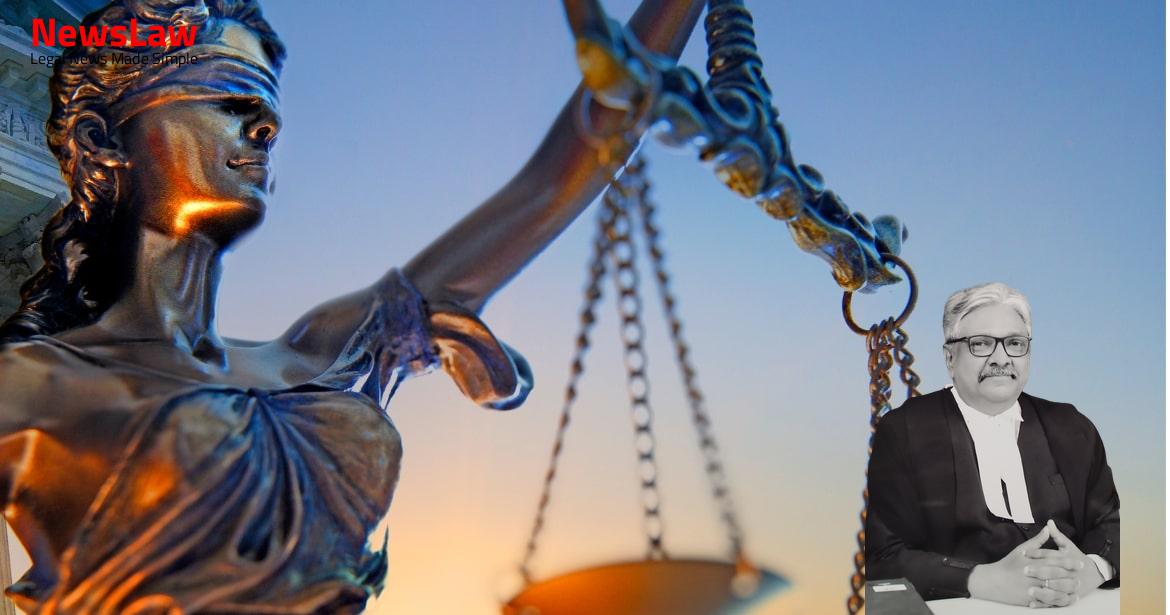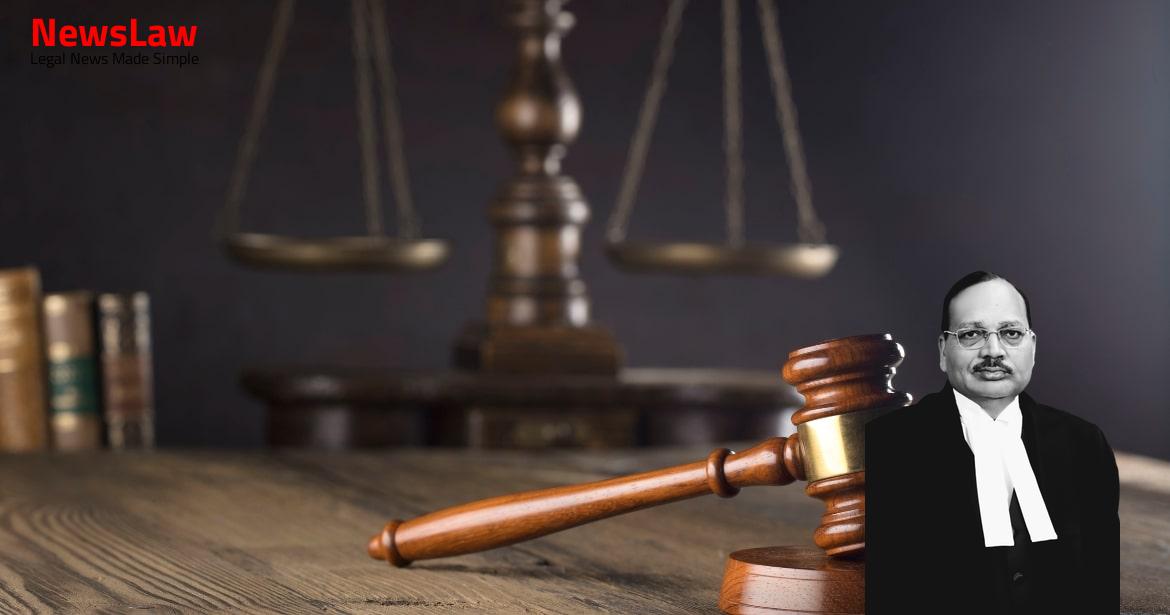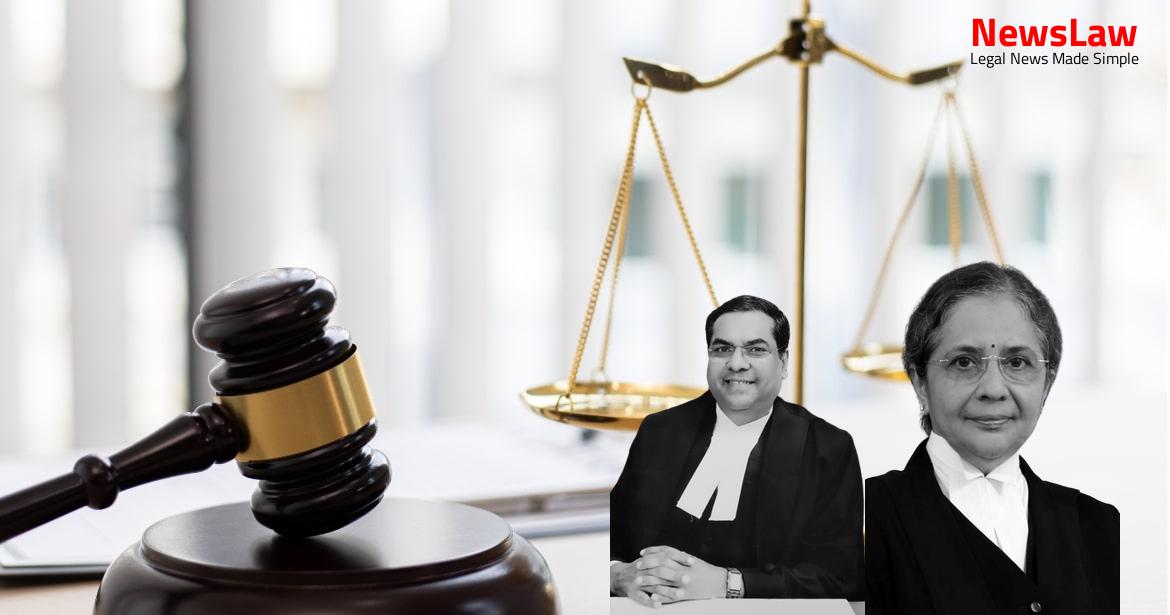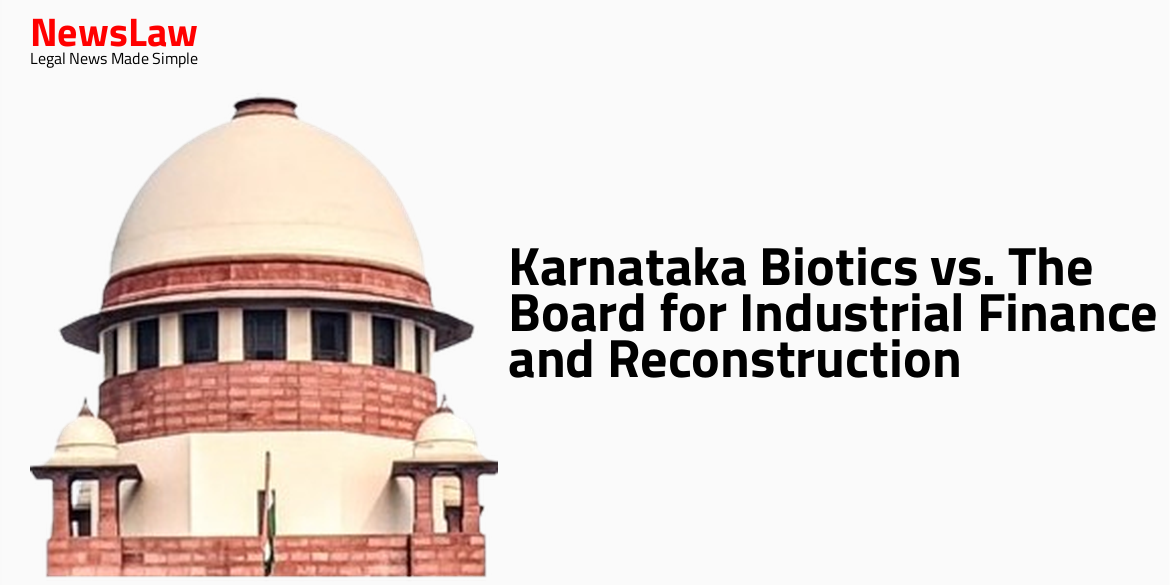The Supreme Court of India delivered a crucial judgment in the case of Food Corporation of India v Jagdish Balaram Bahira, addressing the issues of caste certificate verification and protection of services. The case stemmed from a dispute between the Food Corporation of India and Jagdish Balaram Bahira over the validity of his caste certificate. The court’s ruling has far-reaching consequences and sets a precedent for similar cases in the future.
Facts
- The first respondent submitted an application on 15 February 2016 for protection of his service.
- The first respondent did not submit a fresh caste certificate but approached the issuing authority for clarification.
- The issuing authority confirmed that the caste certificate was issued from the office of the Executive Magistrate.
- Upon request, the first respondent failed to provide the caste certificate which prompted the appellant to inquire with the issuing authority.
- The issuing authority informed the appellant that the caste certificate was not registered in their records.
- The first respondent later applied for verification of his caste certificate to the Scrutiny Committee in August 2015.
- The documents submitted by the first respondent only pertained to the Dhangar Community and not the Dhangad Scheduled Tribe.
- After scrutiny, the Committee found no merit in the claim of the first respondent belonging to the Dhangad Scheduled Tribe.
- The first respondent challenged the Scrutiny Committee’s decision and submitted an application in February 2016.
- Eventually, the Scrutiny Committee invalidated the claim by an order dated 25 April 2016.
- The High Court, in its earlier judgment in Writ Petition No. 5198 of 2009, issued directions regarding caste certificate scrutiny and protection of services.
- Food Corporation of India challenged this High Court order in Special Leave Petitions which were dismissed by the Supreme Court on 12 April 2013.
- The judgment in Arun Sonone by the Bombay High Court was disapproved.
- The services of the first respondent were protected based on the Full Bench judgment of the Bombay High Court in Arun Sonone .
- The Full Bench judgment in Arun Sonone was later overruled by a three-Judge Bench of the Supreme Court in the case of Chairman and Managing Director, Food Corporation of India v Jagdish Balaram Bahira ( FCI ).
- Review petitions related to this matter were also dismissed on 26 February 2014.
Also Read: DAMEPL vs. DMRC: Curative Petition and Arbitral Award Restoration
Arguments
- Mr. Soumya Chakraborty, learned senior counsel for the respondent, relied on an Office Memorandum dated 8 April 2019 issued by the Ministry of Personnel, Public Grievances and Pensions, Department of Personnel and Training.
- The Office Memorandum was used by Mr. Soumya Chakraborty to address the difficulty faced in the case.
- The Office Memorandum was a crucial piece of evidence presented in the argument.
Also Read: Environmental Violations Case: TNPCB v. Copper Slag Unit
Analysis
- The decisions in Barapatre and Nimje were made by a two-judge Bench and do not contradict the binding three-judge Bench decision in FCI.
- The challenge by Food Corporation of India to the Bombay High Court’s order was rejected on 12 April 2013, leading to the order’s finality.
- Only employees covered by the earlier judgment are entitled to specific benefits granted by the High Court.
- The judgment in Nimje regarding Reserve Bank of India also referenced the High Court’s earlier decision dated 1 November 2012.
- The basis of the High Court’s judgment was deemed unsustainable in light of the law laid down in FCI.
- Protection of services was granted in a specific context noted by the Court.
- The decisions in Barapatre and Nimje were made before the final decision in FCI, where the High Court’s order had already attained finality inter partes.
- The matter had to rest there as the High Court’s order had achieved finality before the FCI decision.
- The DOPT circular dated 8 April 2019 and the circular dated 20 June 2019 of the Department of Revenue cannot deviate from the principles established in FCI.
- Both circulars relied on judgments in Barapatre and Nimje.
- The background of the circulars needs consideration of significant facets.
- The decision in FCI is relevant to the above circulars.
- The judgment in FCI was based on a High Court statement, leading to RBI circular.
- Circulars apply only to specific facts in Barapatre and Nimje cases
- Any other interpretation of the circulars would make them ultra vires
- Executive act cannot override the binding decision of the three-judge Bench in FCI case
- Protection of services for Respondent No 1 was not finalized before the FCI decision
- High Court granted protection to Respondent No 1 based on Arun Sonone judgment, which has been overruled
Also Read: High Court Upholds Decision on Minimum Eligibility Cut-Off in Judicial Promotions Case
Decision
- The Writ Petition filed by the first respondent is dismissed.
- There is no order regarding costs.
- The appeal is allowed and the High Court’s judgment dated 11 July 2016 is set aside.
Case Title: THE CHIEF REGIONAL OFFICE THE ORIENTAL INSURANCE CO.LTD. Vs. PRADIP (2020 INSC 91)
Case Number: C.A. No.-000742-000742 / 2020



